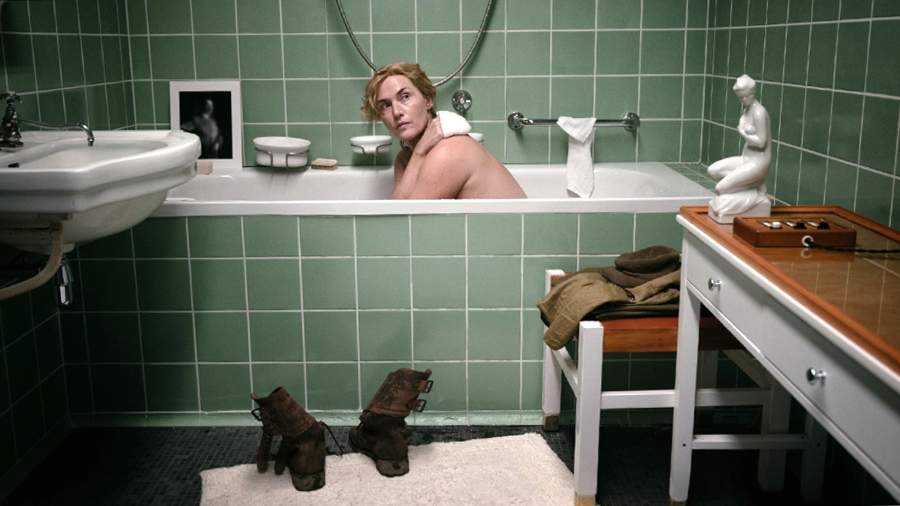Kate "The Great One": why it's worth watching a movie about bohemian beauty Lee Miller
- Статьи
- Culture
- Kate "The Great One": why it's worth watching a movie about bohemian beauty Lee Miller
Kate Winslet is back on screens in the biographical drama "The Great One" (Lee), about the legendary war correspondent Lee Miller. During World War II, she worked for Vogue magazine, was one of the first to film the liberation of Paris, the German concentration camps of Dachau and Buchenwald, and took the famous photo in Hitler's bathtub. The biopic, which was announced back in 2015, waited nearly 10 years for release and ended up receiving mixed reviews from critics. The world premiere took place last September at the Toronto International Film Festival. In the Russian rental "Great" came out on November 21. On the difficult fate of the picture and Lee Miller - in the material "Izvestia".
Watch out for spoilers!
England, 1977. Elderly Lee Miller, played by Kate Winslet, who, by the way, is already at the age when stunningly organic in the role and age heroines, and young, reluctantly, armed with a cigarette and a glass, sits down for an interview. Memories take her and her interlocutor to France in 1938, where she is a model, muse and ingénue. "But all that bored me. I was good at alcohol, sex and photography, and those three things took up all my time," states the narrator. When the war gradually but unexpectedly approaches to the carefree everyday life of serpentine rides in a convertible, sunbathing with bare breasts in the company of French women with Pablo Picasso and other bohemians, Lee Miller with her passion for photography seeks the epicenter of events.
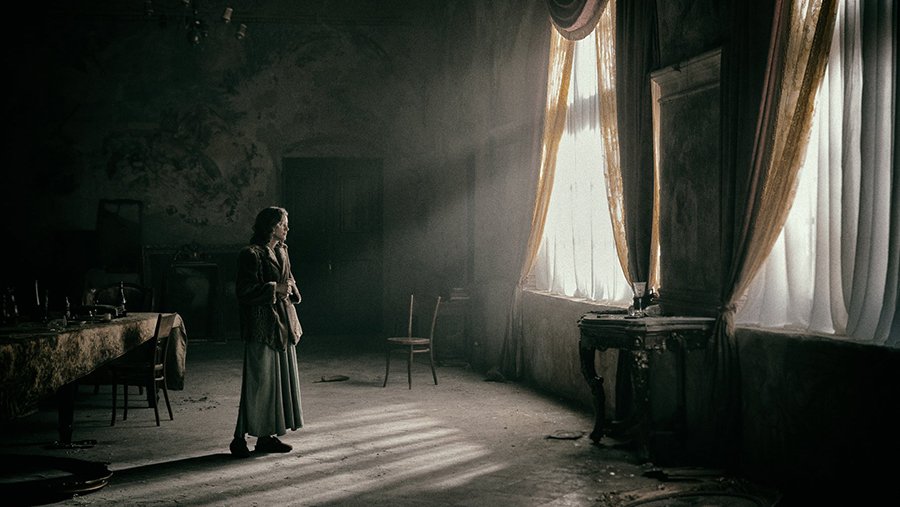
"Great" (original title - Lee) is the directorial debut of Ellen Curas. The path of the project was not easy. The creation of the movie stretched for eight years - it was announced back in 2015. Even then it was planned that Miller would play Kate Winslet. With Curas they met on the set of "Eternal Sunshine of the Pure Mind" (2004), where she was the operator. Winslet not only performed in "The Great" starring role, but also acted as one of the producers, taking on a lot of financial issues. Vogue wrote that once she even had to pay the staff herself two weeks of salary.
The complicated fate of the movie, which was promoted by women, echoed their views on the biography of Lee Miller herself. The theme of feminism, gender inequality and fighting prejudice becomes one of the most prominent. Talent and a great desire to go to the front to document what was happening is not an argument if you are a woman. But thanks to cunning and persistence, you can also sneak into Hitler's lair, take photos in his bathroom, which are eventually destined to go down in history. And only a woman in the world of men here can understand the one who is called a collaborator because she naively believed the words of love: "He was not like the others, I swear. He was friendly and loved me," claims the unfortunate one.
The creators of the picture focused not on the glamorous past of Lee, who once shone on the cover of Vogue, was the muse of Salvador Dalí and Jean Cocteau and the wife of an Egyptian millionaire, but on the period when she retrained as a military photojournalist and captured the most important moments of the Second World War - the use of napalm, the liberation of Paris, the camps of Buchenwald and Dachau.
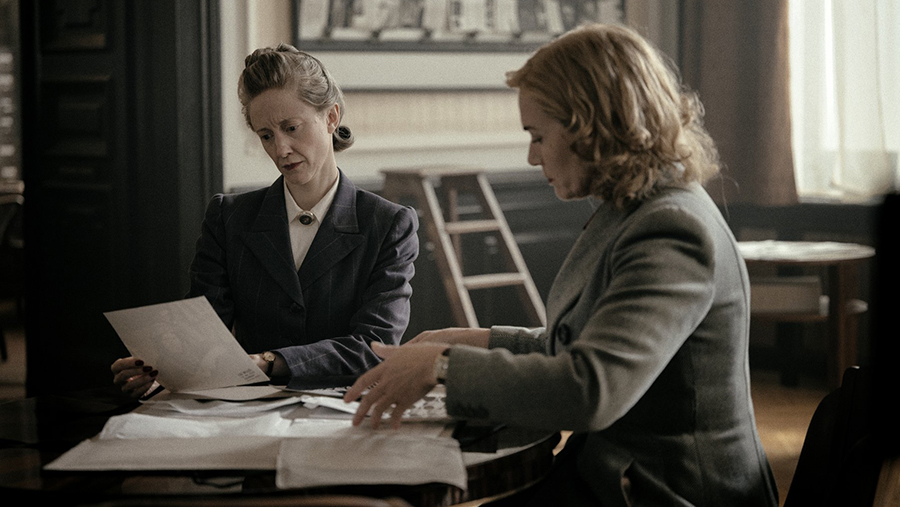
Kate Winslet is not the only decoration of the picture, which distinguished itself with first-class casting. Marion Cotillard played a friend of the protagonist named Solange. Andrea Riseborough is the dedicated editor of British Vogue from 1940 to 1960 Audrey Weathers. One of the most expressive performances came from comedian Andy Samberg - he played Lee Miller's friend and colleague David Sherman. This is his first dramatic role. Alexander Skarsgard appears as an artist and Lee Miller's life partner Roland Penrose. And the star of the series "The Crown" Josh O'Connor embodied on the screen the son of Miller and Penrose Anthony, thanks to the efforts of which his mother's legacy in full view of the public and whose book was the basis of the movie. Ever since Titanic, he believed that only an actress like Kate Winslet could embody his mother on screen.
"A very ordinary movie about an extraordinary woman."
Despite all the components of success, the picture ultimately leaves an aftertaste of understatement. On a biography worthy of screen adaptation, the viewer rushes at a gallop, jumping over major milestones, with an inevitable desire afterwards to turn to the Internet to learn more about this woman and her pictures. And the sudden denouement of the interview is not brought to the point where the effect of the reception should work - the viewer will either burst into tears or experience a shock as if he or she had been pelted with ice water. Foreign critics were not thrilled with the movie - it received only 67% positive reviews on Rotten Tomatoes. Dissatisfaction is mainly due to the fact that the biography turned out to be standard and cautious.
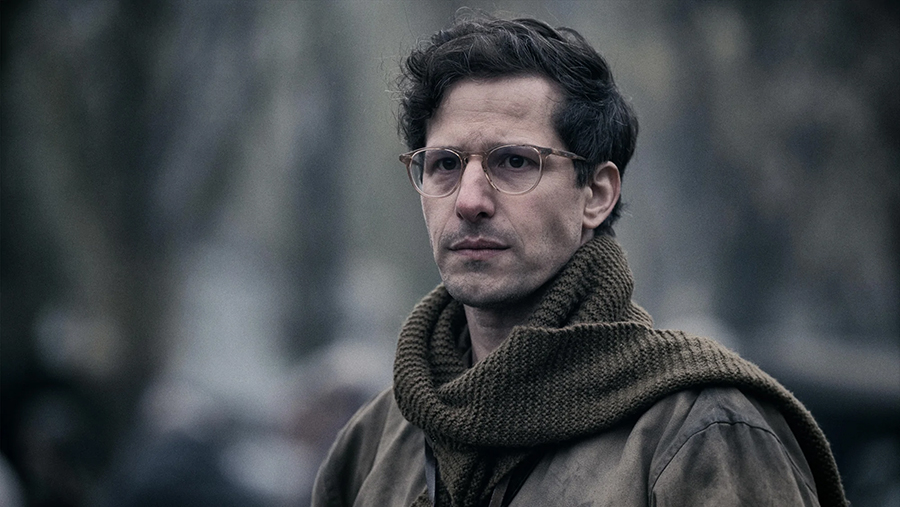
"Despite a stellar cast and Winslet's tenacity, 'The Great One' is the most ordinary movie about an extraordinary woman," says Tara Brady of The Irish Times.
"Virtually every scene in this impressively edited and high-quality documentary drama is taken straight from the compendium of standard biographical films," writes Richard Roper of The Chicago Sun-Times.
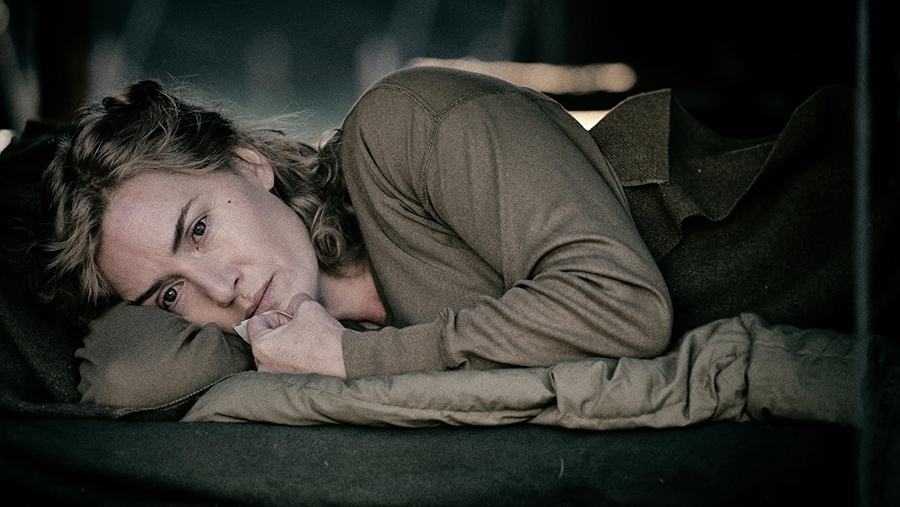
On the other hand, experts praise the camerawork. The Playlist columnist Jason Bailey writes that the images are flawless and that Curas and her cameraman Paul Edelman create a striking aesthetic. In addition, global critics are in awe of Winslet's performance, whose character they find to be both annoying, admirable and incredibly heroic.
Переведено сервисом «Яндекс Переводчик»
